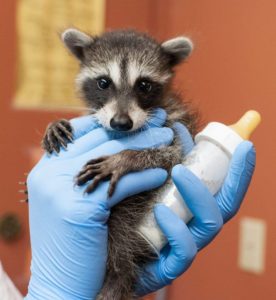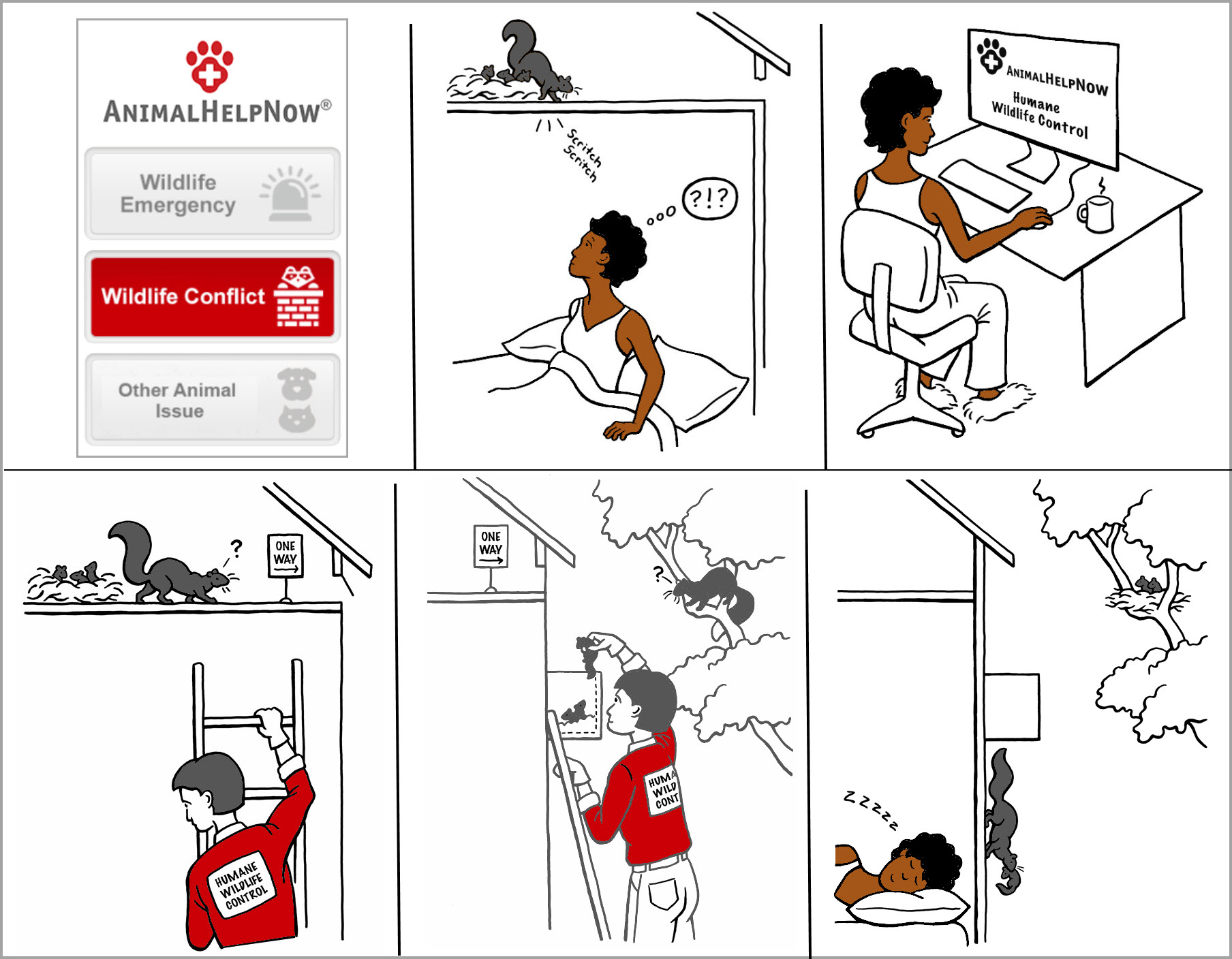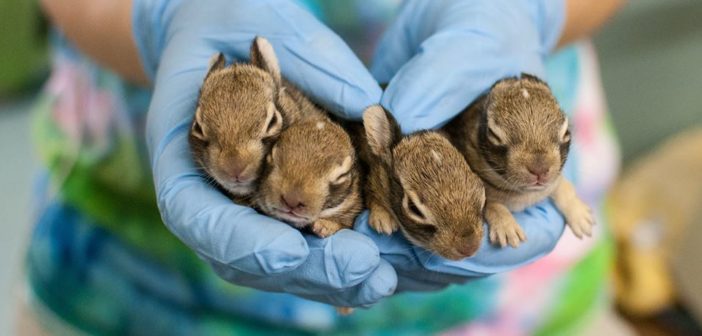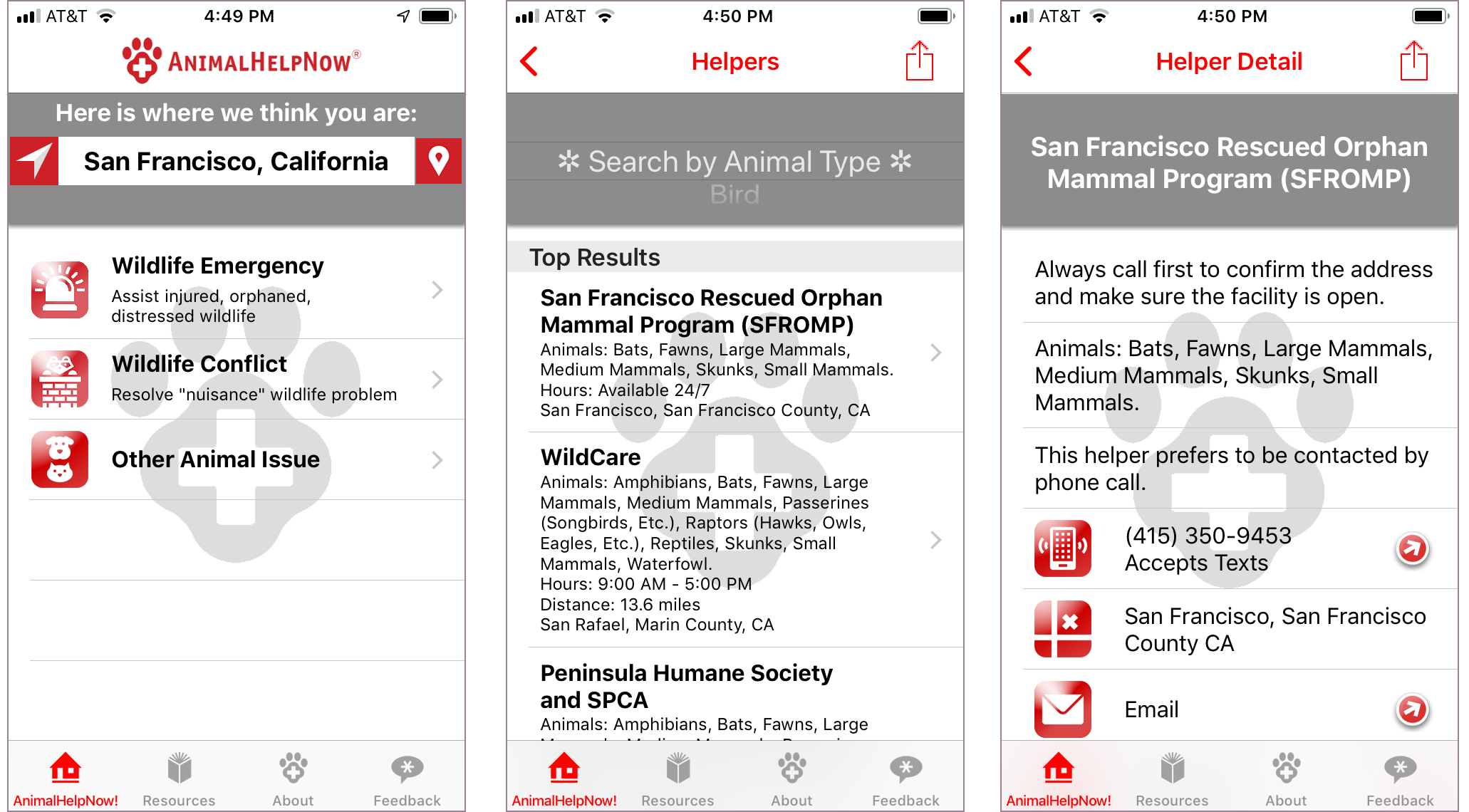If you care about wildlife or if you’ve ever come across an injured or orphaned wild animal, good news: your quality of life is about to improve!

Because he’s now in the care of a rehabilitator, this orphaned baby raccoon has a good chance of survival. Photo credit: Austin Wildlife Center
Springtime means wildlife are on the move: they’re waking up from hibernation, dispersing, migrating, building nests, and feeding newborns.
And because wild animals are on the move, they’re running the gauntlet of anthropogenic threats, including dog and cat attacks, motor vehicle strikes, window strikes and many more.
Although billions of wild animals die each year in the United States from human-related causes, hundreds of millions and possibly billions survive, at least initially. The baby rabbit or salamander who survives a cat attack, the robin who survives a window strike, the baby foxes whose parents were killed by a speeding SUV – these animals all have at least a chance to survive.
To maximize those chances, these animals need to be put out of harm’s way and into the care of wildlife experts – most often licensed wildlife rehabilitators – as soon as possible.
Whether you’re helping an animal injured by a motor vehicle, a cat attack or a window strike, the first thing to do is to eliminate or minimize any remaining threats. If the animal is in the road, get the animal out of the road. If the animal is in a yard with cats or dogs, get the cats and dogs back inside, or get the animal to a safe place away from them. Getting the animal to a safe, quiet, warm place is essential. Of course, you must always consider your own safety first when helping any animal.
Now find help. This is where Animal Help Now (AHNow) comes in.
Let’s say you are visiting a friend whose cat, Sampson, is allowed to go outdoors. You and your friend are chatting, when Sampson comes inside with a baby rabbit in his mouth. Sampson drops the rabbit, who is alive but too scared to even try to move. What now?
The first thing is to get the bunny off the floor and Sampson securely shut in another room. The next is to get the bunny into a comfortable box and get the box into a dark, warm, quiet place. Supplemental heat (ideally, a heating pad placed on low and covering half of the bottom of the box) can help prevent shock.
The next thing is to find a wildlife rehabilitator. Even if there are no obvious injuries, any animal who has been in a cat or dog’s mouth may have puncture wounds and must be seen by an expert. Now for the easy part.
- Open the Animal Help Now smartphone app or the AHNow.org website.
- Make sure your address (or zip code or city and state) appears in the address box.
- Click/tap Wildlife Emergency.
- Contact the first helper in the list who accepts small mammals. (If you don’t reach the helper, you can contact others, as well.)
Not all areas of the country have adequate wildlife rehabilitation services, but AHNow makes it as easy as possible to find whatever help is available. AHNow even lists wildlife hotlines, such as the Illinois/Missouri Bi-State Wildlife Hotline and the Dallas/Fort Worth Wildlife Coalition Hotline. And the organization lists every US marine animal hotline, so if you encounter an ensnared sea turtle or a beached dolphin on any US coastline, AHNow will immediately direct you to the right help.
AHNow also features an extensive library of resources to help people be better neighbors to wildlife. The organization provides valuable tips on mitigating threats to wildlife, being prepared for wildlife emergencies, assessing whether or not young animals are orphaned, and more.
The library can be accessed by clicking on Resources from the AHNow website or phone apps. The Resources section contains a wealth of information on domestic animal issues, as well.
AHNow recently added a “nuisance” wildlife service (though we know humans are the real nuisance, and that’s putting it kindly). This service allows you to find humane assistance when you have an unwanted skunk under your porch or unwelcome squirrels in your attic. Only a very small percentage of wildlife control operators are truly humane. AHNow makes it easy to find them.

AHNow can help you easily find humane wildlife control operators when you have a wildlife conflict issue.
What you can do right now:
- Download the free Animal Help Now app today (iPhone, Android)
- Bookmark www.AHNow.org
- Create your own emergency rescue kit (for car or home)
- Follow us on Facebook (our other social media links can be found at AHNow.org)
Animal Help Now is a volunteer-driven organization. If you like what we are doing and you have high-level skills to offer, such as advertising, business development, emergency services management or web development, please contact us at info@ahnow.org.
Featured image: baby rabbits are held by a rehabilitator. Image credit Austin Wildlife Rescue.






